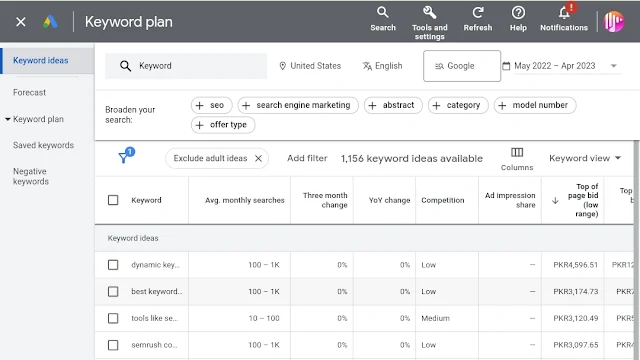Keyword research is the process of finding and researching the keywords that your target audience is using to search for information online. By understanding what keywords your audience is using, you can create content that is more likely to be found by them. This can lead to increased website traffic.
{tocify} $title={Table of Contents}
Keyword Researching Tip's in 3-Steps Process
In this article, we will discuss the three steps involved in keyword research.
- Identify your target audience
The first step in keyword research is to identify your target audience. Who are you
trying to reach with your content? What are their interests? What are their pain points?
Once you understand your target audience, you can start to identify the keywords that
they are using to search for information.
There are a number of ways to identify your target audience. You can conduct surveys,
look at your website analytics, or talk to your customers. Once you have a good
understanding of your target audience, you can start to brainstorm a list of keywords
that they might be using.
2. Research your keywords
Once you have a list of keywords, you need to research them to determine their search
volume, difficulty, and competition. Search volume is the number of times a keyword is
searched for each month. Difficulty is a measure of how difficult it is to rank for a
keyword. Competition is the number of other websites that are also trying to rank for the
same keyword.
There are a number of tools that you can use to research keywords. Some popular
tools include Google Keyword Planner, Moz Keyword Explorer, and Ahrefs Keyword
Explorer.
3. Select your keywords
Once you have researched your keywords, you need to select the ones that are most
relevant to your target audience and that you have a realistic chance of ranking for. You should also consider the search intent of your keywords. Search intent is the reason
why someone is searching for a particular keyword. There are three main types of
search intent.
- Informational - The user is looking for information about a particular topic.
- Navigational - The user is trying to find a specific website or page.
- Transactional - The user is looking to buy something.
When selecting keywords, it is important to consider the search intent of your target
audience. For example, if you are a business that sells shoes, you might want to target
informational keywords like "how to choose the right shoes" or "best shoes for running."
You might also want to target navigational keywords like "nike shoes" or "adidas
shoes." And you might want to target transactional keywords like "buy shoes online."
By following these three steps, you can conduct effective keyword research that will
help you to create content that is more likely to be found by your target audience.
Additional Tips for Keyword Research For Beginners
In addition to the three steps outlined above, there are a few additional tips that you can
follow to improve your keyword research process.
- Use long-tail keywords : Long-tail keywords are more specific and have lower search volume than short-tail keywords. However, they also have less competition. This means that it is easier to rank for long-tail keywords.
- Use negative keywords : Negative keywords are words or phrases that you don't want your website to be found for. For example, if you sell shoes, you might want to add the negative keyword "free" to your keyword list. This will prevent your website from being found for searches like "free shoes."
- Use keyword tools : There are a number of keyword tools that can help you with your keyword research. Some popular tools include Google Keyword Planner, Moz Keyword Explorer, and Ahrefs Keyword Explorer.
- Track your progress : It is important to track your progress with keyword research. This will help you to see which keywords are working and which ones are not. You can track your progress using Google Analytics or a keyword tracking tool. By following these tips, you can improve your keyword research process and get better results from your SEO efforts. Here are some additional tips for keyword research:
- Use a variety of keyword research tools : There are a number of different keyword research tools available, each with its own strengths and weaknesses. It is important to use a variety of tools to get a comprehensive view of the keywords that your target audience is using.
- Consider your target audience's location : If you have a local business, it is important to consider your target audience's location when selecting keywords. You can use the Google Keyword Planner to see how often a keyword is searched for in a particular location.
Use keyword research to create content that is relevant to your target audience
By following these tips, Keyword Researching Tip's in 2023


